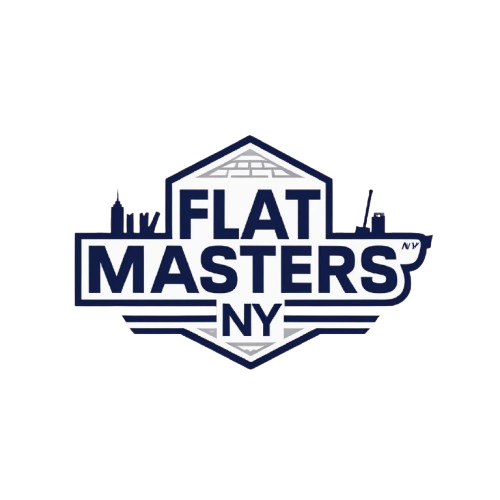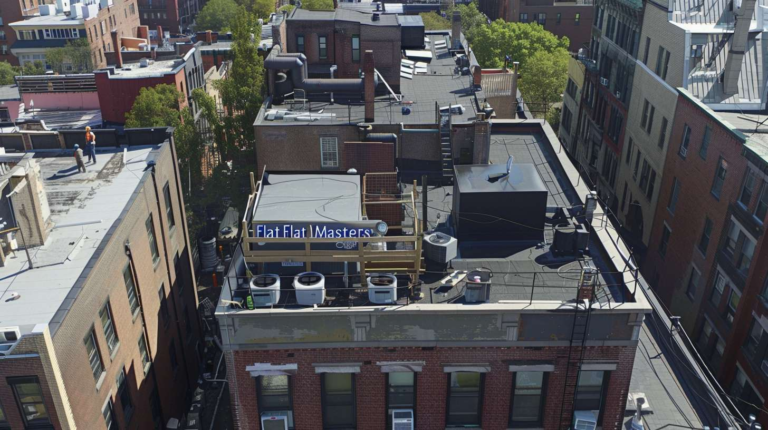Professional Flat Roof Boarding Installation Services Near You
Look, I've been installing flat roof boarding across Queens for over fifteen years now, and I can tell you straight up - this isn't the kind of work you want to mess around with. When we're talking about flat roof boarding installation, we're dealing with the foundation that everything else depends on. Get it wrong, and you're looking at problems that'll cost you thousands down the road.
At Flat Masters NY, we see boarding jobs gone bad all the time. Just last month on Northern Boulevard, we had to completely redo a boarding installation that another contractor botched. The homeowner thought he was saving money. Instead, he ended up paying twice.
What Is Flat Roof Boarding and Why Does It Matter?
When we talk about boarding a flat roof, we're referring to the structural deck that sits on top of your roof joists. This isn't just any old plywood you pick up at Home Depot. We're talking about moisture-resistant sheathing that needs to handle Queens weather - the humidity from the East River, those brutal nor'easters that slam us every winter, and summers where the roof surface hits 150 degrees.
Most flat roofs in Queens use either OSB (oriented strand board) or plywood sheathing, typically 5/8" thick. But here's what most contractors won't tell you - the grade matters more than the thickness sometimes.
The Real Cost of Professional Flat Roof Boarding
Flat roof boarding installation typically runs $3.50 to $6.25 per square foot for materials and labor combined. That's for quality work, not the cheap stuff. On a standard 1,200 square foot flat roof here in Queens, you're looking at $4,200 to $7,500 for complete boarding installation.
But let me break this down for you because the price variations make sense once you understand what goes into it:
- Basic OSB boarding: $3.50-4.75 per sq ft
- Premium plywood boarding: $4.25-5.50 per sq ft
- Tongue-and-groove premium: $5.00-6.25 per sq ft
Now, these prices assume your existing structure is solid. If we need to reinforce joists or deal with rot damage, add another $2-4 per square foot. I've seen jobs where the structural work doubled the total cost, but that's because previous contractors cut corners.
Why Queens Flat Roofs Need Special Attention
Working in Queens for all these years, you learn that our weather is particularly brutal on flat roof boarding. The salt air from Flushing Bay and LaGuardia's jet fuel fumes create conditions that eat through substandard materials. That's why we always spec marine-grade fasteners and use exterior-grade sheathing, even though it costs more upfront.
The building codes here require specific spacing and fastening patterns too. Some contractors think they can wing it, but the city inspectors know their stuff. I've never had a boarding job fail inspection because we follow the book.
Signs You Need New Flat Roof Boarding
How do you know when your flat roof boarding needs replacement? After doing this for so long, I can spot the warning signs from the ground sometimes. Here's what to look for:
- Sagging or dips in the roof surface
- Spongy feeling when you walk on the roof
- Water stains on interior ceilings
- Visible rot around roof edges
- Fasteners pulling through the membrane
That last one is huge. When the boarding starts failing, the membrane fasteners lose their hold. Then you get wind uplift issues, and before you know it, you've got a much bigger problem than just boarding replacement.
Our Flat Roof Boarding Installation Process
Every job starts with a structural assessment. My guys - Carlos has been with me for eight years now - they know how to spot problems before they become disasters. We pull up sections of the existing membrane to check the boarding condition. Sometimes we find surprises, usually not good ones.
The actual installation process depends on whether we're doing a complete tear-off or a retrofit. Complete tear-offs are cleaner work, but they cost more and take longer. Retrofits can work if the existing structure is sound, but you're limited in what materials you can use.
For new boarding installation, we always start at the lowest point and work our way up, maintaining proper drainage slopes. Every sheet gets fastened according to manufacturer specs - no shortcuts. The fastener schedule matters because wind uplift forces in Queens can be significant, especially if you're near the water.
Material Choices That Actually Matter
OSB gets a bad rap, but high-quality OSB can outperform cheap plywood. The key is moisture resistance and structural rating. We typically use 5/8" OSB with radiant barrier backing on south-facing roofs. It costs about 15% more than standard OSB, but the energy savings pay for themselves.
For premium jobs, we go with marine-grade plywood. It's overkill for most applications, but if you're planning to stay in your building for twenty years, it's worth considering. The stuff we get from our supplier on Northern Boulevard has a 50-year warranty against delamination.
One thing people don't think about is fastener compatibility. Different boarding materials require different fastener types and lengths. Use the wrong fasteners, and you'll have problems down the road guaranteed.
Common Mistakes We Fix
I see the same mistakes over and over again. Contractors who don't understand flat roof drainage installing boarding without proper slopes. That's a recipe for ponding water and premature failure. Or guys who use interior-grade materials because they're cheaper. The humidity levels on Queens roofs will destroy that stuff in two seasons.
Another big one is inadequate fastening around the perimeter. That's where wind uplift forces are highest, and it's where failures usually start. We use double the minimum fastener schedule around all edges and penetrations.
The worst mistake I see is mixing old and new materials without proper transition details. You can't just butt new boarding against old and expect it to work long-term. Thermal expansion differences will create gaps and stress points.
Why Choose Flat Masters NY
Look, there are plenty of roofing contractors in Queens. What sets us apart is that we actually specialize in flat roofs. We're not trying to be everything to everyone. When you call Flat Masters NY, you're getting a team that lives and breathes flat roof systems.
We carry full licensing and insurance, including workers' comp that covers all our guys. Our license number is available on request, and we're happy to provide references from recent jobs in your neighborhood.
Every boarding installation comes with a written warranty covering materials and workmanship. We stand behind our work because we plan to be here for the long haul.
Getting Your Flat Roof Boarding Project Started
The best time for flat roof boarding installation in Queens is late spring or early fall. Summer heat makes the work harder on the crew, and winter weather can delay completion. But emergencies don't wait for perfect weather, and we handle urgent repairs year-round.
For a proper assessment of your flat roof boarding needs, give us a call at (917) 994-7618. We provide detailed written estimates that break down materials, labor, and timeline. No surprises, no hidden costs, just straight talk about what your roof needs and what it's going to cost.
We serve all of Queens - from Astoria to Jamaica, Forest Hills to Far Rockaway. If you've got a flat roof in Queens County, we've probably worked in your neighborhood.


